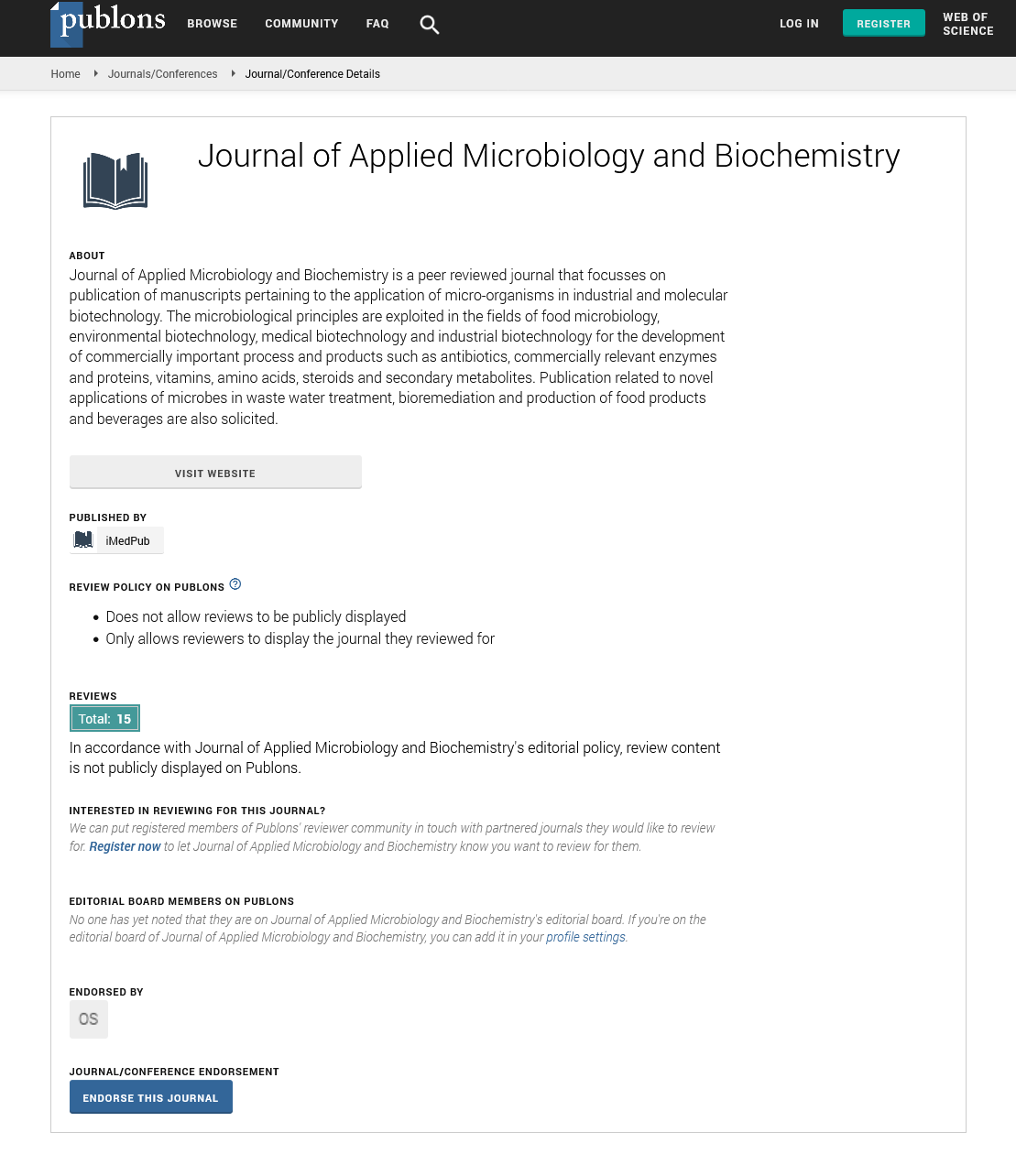ISSN : ISSN: 2576-1412
Journal of Applied Microbiology and Biochemistry
Abstract
The Occurrence of Multidrug Resistant E. Coli which Produce ESBL and Cause Urinary Tract Infections
Urinary tract infection (UTI) is caused by Gram-negative bacteria such as Escherichia coli, Klebsiella species, Enterobacter species, Proteus species and Gram-positive bacteria like Enterococcus species, and Staphylococcus saprophyticus. E. coli is the most common organism causing both community as well as hospital acquired UTI.
The aim of this study was to determine the occurrence of multidrug resistant strains among UTI caused by E. coli isolates against commonly used antimicrobial agents and the possible role of extended spectrum beta-lactamases (ESBL) in E. coli resistance to antibiotics.
One hundred E. coli isolates from 262 inpatients were identified. Susceptibility to various antibiotics was checked using standard methods. All Isolates were examined for the presence of ESBL using combination disc method, indicating ESBL production.
Most of isolates were resistant to ampicillin and cephalothin. Overall resistance to beta-lactam antibiotics ampicillin and cephalothin was 95% and 93% respectively. Almost all Isolates were sensitive to imipenem with 2% resistance. Thirty six per cent of E. coli isolates were ESBL producers.
In order to find out the plasmid profile of these isolates, plasmid preparations were made for each isolate. Out of 100 clinical isolates 68 of them were found to have one or more plasmids responsible for ESBL resistance.
Our results conclude that most of E. coli isolated during this study, are ESBL producing. It is highly recommended that antibiotic prescription should be monitored according to the guidelines. Antibiotic consumption should be monitored both in healthcare facilities as well as in community. The role of Infection prevention and control is crucial in all healthcare facilities to decrease the occurrence of antibiotic resistance.
Author(s): Talat I Elsayed, Hala AF Ismail, Samir A Elgamal and Ahmed HA Gad
Abstract | Full-Text | PDF
Share This Article
Google Scholar citation report
Citations : 342
Journal of Applied Microbiology and Biochemistry received 342 citations as per Google Scholar report
Journal of Applied Microbiology and Biochemistry peer review process verified at publons
Abstracted/Indexed in
- Google Scholar
- China National Knowledge Infrastructure (CNKI)
- Cosmos IF
- Directory of Research Journal Indexing (DRJI)
- Publons
- Secret Search Engine Labs
Open Access Journals
- Aquaculture & Veterinary Science
- Chemistry & Chemical Sciences
- Clinical Sciences
- Engineering
- General Science
- Genetics & Molecular Biology
- Health Care & Nursing
- Immunology & Microbiology
- Materials Science
- Mathematics & Physics
- Medical Sciences
- Neurology & Psychiatry
- Oncology & Cancer Science
- Pharmaceutical Sciences
